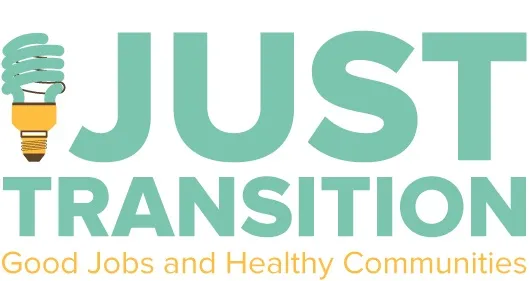Resolution: A Just Transition for Workers

Resolution passed by Vermont State Labor Council's 2017 convention:
Whereas: Global warming is a scientific fact and a rapid conversion to a green economy is essential for the future of the human race. A green economy will create millions of new jobs, but it will also disproportionately affect workers and communities in the extractive and basic industrial sectors; and
Whereas: Likewise, the establishment of a single payer Medicare for All healthcare system will eliminate many clerical and administrative jobs in insurance companies, hospitals and doctors offices while creating new jobs in basic and preventive healthcare. The reduction in military spending affects jobs in armament production while freeing up resources for much needed infrastructure development. And the scaling back of our grotesque prison industrial complex will eliminate jobs in prisons and create new ones in social and rehabilitative services; and
Whereas: Unfortunately, there is no guarantee that workers in these affected industries will be re-employed in the new, socially useful positions, nor are there guarantees that these new jobs will provide the same levels of wages, benefits and union security that the old jobs did. In fact, America is littered with communities that have been devastated as a result of the unilateral decisions made by economic and political elites. This has provided fertile ground for right wing demagogues to exploit working people’s legitimate anger at being left behind; and
Whereas: the Vermont State Labor Council, AFL-CIO believes that all workers have the right to a just transition whenever a change in public policy affects their lives and livelihoods. Workers and their communities should not have to pay the price for the elimination of unjust or unsustainable economic activities. Rather, those who profited from the continuation of these practices should pay the costs of conversion; and
Whereas: The idea of just transition was developed by labor leader Tony Mazzocchi* as his union struggled with the loss of thousands of jobs as a result of the elimination of toxic chemicals and environmentally destructive practices. “They have a super-fund for dirt,” he said, “they should have one for workers too.;” and
Whereas: Putting just transition at the center of any proposals to build a fair and sustainable economy will help to achieve the kind of working class unity that we need to win; now
Therefore Be It Resolved: That the Vermont State Labor Council, AFL-CIO will seek to hold political leaders accountable to the standard that at a minimum, a just transition for workers would include:
- Job training and preferential placement in positions with comparable wages and benefits consistent with seniority and the provisions of any applicable collective bargaining agreements.
- Educational and retraining benefits for all displaced workers including tuition payment and living stipends for up to four years of additional education.
- Enhanced severance, wage subsidy and retirement benefits for all displaced workers equivalent to 100% of the average salary for the affected workers for up to four years or placement in a job with equivalent or greater salary, whichever comes first. These benefits shall be in addition to that required by any applicable collective bargaining agreement, employee manual or corporate policy.
- Transition assistance benefits for any affected community.
“We need to hammer out . . . a transition where people are not sacrificed, where people will be able to be compensated fully in any transition period if their jobs are lost for environmental reasons. We can’t just give lip service. If there’s to be a real alliance around our shared concerns, the cornerstone has to be a just transition, a transformation, moving from the type of society that does harm to a great many people to a society that does harm to no one and a society that’s free of want. But it cannot be rhetorical, it’s got to be practical, it’s got to be tangible and understandable and coherent, and we’ve got to hammer out that program together.” Tony Mazzocchi (April, 2000)